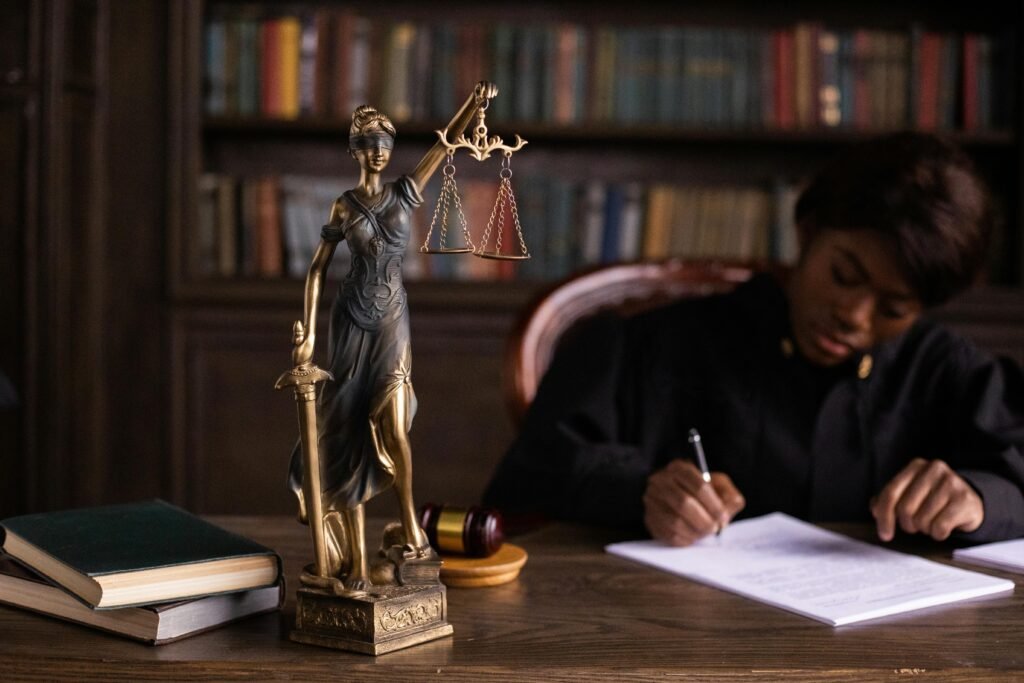At what point does a simple mistake become a criminal matter?
Many people assume that only serious acts like theft, assault, or murder count as criminal offences. But in reality, the law covers a wide range of behaviours that might seem harmless or “civil” at first glance. What starts as a heated argument, a social media post, or a small favour can quickly turn into a criminal case with long-term consequences.
This team of criminal lawyers in Sydney has seen how easily good people can find themselves in legal trouble, often because they didn’t realise the situation had crossed into criminal territory.
Here are some common examples of cases people often misjudge as “light” or “civil,” but are actually criminal under NSW law.
1. Verbal Threats and Harassment

“It was just an argument.”
Words can be powerful and dangerous. In NSW, making threats, sending intimidating messages, or repeatedly contacting someone can amount to stalking or intimidation under the Crimes (Domestic and Personal Violence) Act 2007. Even if no physical harm occurs, the intent and impact of your words can make it a criminal offence, especially in domestic or online contexts.
2. Domestic Disputes
“It’s just a lovers’ quarrel.”
Many couples dismiss heated moments as “private matters,” but once police are called, it can become a criminal case. Even minor acts like pushing, shouting, or breaking belongings can lead to assault charges or Apprehended Violence Orders (AVOs). These cases are taken seriously, regardless of whether the victim decides to press charges later.
3. Online Insults, Defamation, or “Rants”

“It’s just freedom of speech.”
While defamation cases can be civil, things change when online comments become threatening, harassing, or menacing. Using a carriage service (like social media or email) to harass or threaten someone is a criminal offence under Commonwealth law. What you post online could lead to more than just an argument; it could lead to a criminal charge.
4. Traffic Offences Beyond Speeding
“It’s just a traffic ticket.”
Just because no one was hurt (or worse, killed) doesn’t mean a traffic offence isn’t criminal. Once it involves recklessness, danger to others, or repeated violations, it becomes a criminal offence that’s prosecuted in court and can result in severe penalties. That includes licence disqualification, heavy fines, imprisonment, and a permanent criminal record.
Serious traffic offences under NSW law include drink or drug driving, dangerous or reckless driving, evading or resisting police, driving while disqualified or suspended, and post-collision offences. These aren’t treated as minor infringements; they carry serious legal and personal consequences that can affect your job, insurance, and even your ability to travel.
5. Property Damage or Vandalism

“It’s my property too.”
Breaking or damaging property, even during a personal dispute, can be charged as malicious damage under the Crimes Act 1900 (NSW). This applies whether you damage your partner’s belongings, a friend’s car, or shared property. Intent matters—if the act was deliberate, it’s criminal.
6. Borrowing Money or Items Without Permission
“I was going to return it.”
If you take someone’s property or money without clear consent or with no intent to return it, you could face theft or fraud charges. Even “borrowing” items from work or using someone else’s account details without permission may lead to serious criminal allegations.
7. Forging or Altering Documents

“It’s just paperwork.”
Altering documents like signatures, payslips, IDs, or receipts, even for convenience or “proof”, is a form of forgery or fraud. These are serious criminal offences that can carry jail time, especially when the intention is to deceive or gain a benefit.
8. Trespassing or Unwanted Visits
“I just wanted to talk.”
Entering someone’s property without permission, particularly after being told not to, can become a criminal trespass or “break and enter” offence, depending on intent. If the visit is part of an ongoing pattern of intimidation or harassment, it may also lead to stalking charges.
9. Shoplifting or Forgetting to Pay

“It was an accident.”
Even small acts of shop theft are prosecuted as larceny, a criminal offence that can appear on your record. Many first-time offenders are surprised to learn that “accidentally” forgetting to pay doesn’t always hold up as a defence in court.
10. Swearing or Resisting Police
“I was just upset.”
Offensive language, resisting arrest, or arguing with officers can escalate into criminal charges like offensive conduct or assaulting police. Whether you agree with the situation or not, staying calm and cooperative is always the safest option.
How a Minor Case Can Escalate Into a Major Offence
What often starts as a “small issue” can quickly become a serious legal matter once other factors come into play. Here’s how a seemingly minor incident can spiral:
- Repeat behaviour – Repeated offences or breaches of court orders (like AVOs) can lead to harsher penalties or even jail time.
- Injury or damage involved – If an argument turns physical or property is damaged, what began as a dispute can escalate into assault or malicious damage charges.
- Intent and evidence – Messages, threats, or social media posts showing intent to cause harm can upgrade a case from a simple misunderstanding to stalking or intimidation.
- Involving weapons or alcohol – Adding a weapon or intoxication to the situation can turn a minor offence into a serious indictable offence with severe penalties.
- Police involvement – Once law enforcement files a report, the matter can proceed even without the victim’s cooperation. What you thought could be “talked out” might already be in the hands of the court.
When a case escalates, the penalties also worsen. These range from fines and community service to imprisonment and a lasting criminal record.
That’s why it’s crucial to seek early legal advice the moment you’re involved in a dispute or police inquiry. An experienced criminal lawyer can intervene before things get out of hand.
When in Doubt, Get Legal Advice
Misunderstanding the law doesn’t make you immune to it. Even if you didn’t mean harm or thought the issue was minor, certain actions can still result in criminal charges that affect your reputation, freedom, and future.
Unsure whether a situation could lead to criminal consequences? Don’t wait. Speak with experienced criminal lawyers who can explain your rights, guide you through the legal process, and help you achieve the best possible outcome.
Author Bio: Carmina Natividad is a daytime writer for Catron Simmons Lawyers, a trusted Adelaide-based law firm offering expert legal services in family law, wills and estates, property settlements, and support from skilled criminal lawyers in Australia. She enjoys writing helpful and easy-to-digest content about legal topics, offering practical tips and insights to make navigating life’s tricky situations a little less stressful.






